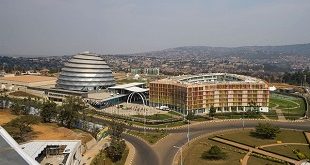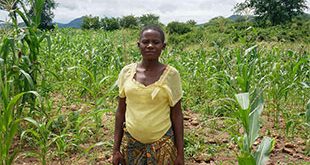
Central Bank of Sudan announced unification of the exchange rate of the Sudanese pound against the dollar
Khartoum, Sudan | Xinhua | The markets in the Sudanese capital are witnessing a state of confusion and paralysis due to the ongoing depreciation of the Sudanese pound against foreign currencies.
A tour for Xinhua of Al-Sajana Market, west of Khartoum, Khartoum 2 Market in central Khartoum, and the Central Market, south of Khartoum, revealed that most shops have stopped selling products due to inability to determine their prices.
Building materials shops in Al-Sajana Market, the most famous market for building materials in Khartoum, were particularly affected, where most of the traders refrained from selling their merchandise.
“I have no choice but to stop selling, whereas prices are changing around the clock due to the great collapse of the (Sudanese) pound,” Azhari Khalid, a major supplier of building materials and owner of a store at Al-Sajana Market, told Xinhua on Friday.
“We fear to sustain a loss that causes us to exit the market if we decide to take the risk of selling the goods in our hand, because it is certain that their prices will double the next day,” he noted.
Meanwhile, at Khartoum 2 Market, new brands of mobile phones have disappeared, most notably the recent generations of iPhone and Samsung.
“It is natural that modern brands of mobile phones disappear under the confusion which prevails in the market,” Ahmed Zahi, owner of mobile phones and computers store at Khartoum 2 Market, told Xinhua on Friday.
“For instance, a week ago, we sold iPhone 12 for 650,000 Sudanese pounds, which equal to exactly 1,400 U.S. dollars. If we sell the same phone at the same price now, it will only worth roughly 1,000 dollars,” Zahi said.
The situation was similar at the auto spare parts shops in Khartoum 2 Market, where market traders declined to sell their merchandise.
“We import spare parts in foreign currencies and are unable to sell them due to the (Sudanese) pound’s drop in value and the difficulty to sell them in foreign currencies. We have no choice but to stop the sale until the exchange rate of the national currency stabilizes,” Salaheddin Metwally, a sales manager at Al-Nasr Auto Spare Parts Company, told Xinhua on Friday.
Consumer goods prices have risen dramatically at the Central Market, raising concerns as the holy month of Ramadan approaches.
A sack of sugar (50 kilos) jumped from 18,000 Sudanese pounds to 25,000 pounds, while the price of edible oil (36 pounds) registered 24,000 pounds instead of 17,000 pounds about two weeks ago.
In the meantime, the Sudanese pound has continued to fall sharply against foreign currencies, with the parallel market’s exchange rate of one U.S. dollar to 600 Sudanese pounds on Thursday, compared to the official exchange rate of 585 pounds.
On Tuesday, the Central Bank of Sudan announced in a statement the unification of the exchange rate of the Sudanese pound against the dollar.
The decision left the banks and exchange companies to determine the exchange rate of foreign currencies without interference from the central bank.
Sudan has been facing an economic crisis after the United States and international agencies suspended aid with hundreds of millions of dollars after Abdel Fattah Al-Burhan, the general commander of the Sudanese Armed Forces, declared a state of emergency on Oct. 25, 2021 and dissolved the Sovereign Council.
The United States immediately suspended 700 million U.S. dollars in economic aid to Sudan, while a budget support of 500 million U.S. dollars from the World Bank, which was expected in November 2021, and 150 million U.S. dollars in special drawing rights from the International Monetary Fund, were also halted.
Sudan’s debt relief process under the Heavily Indebted Poor Countries (HIPC) Initiative of the International Monetary Fund has also halted.
Sudan has been undergoing a dire economic crisis since the secession of South Sudan in 2011, due to which Sudan lost 75 percent of its oil revenues.
******
Xinhua
 The Independent Uganda: You get the Truth we Pay the Price
The Independent Uganda: You get the Truth we Pay the Price



